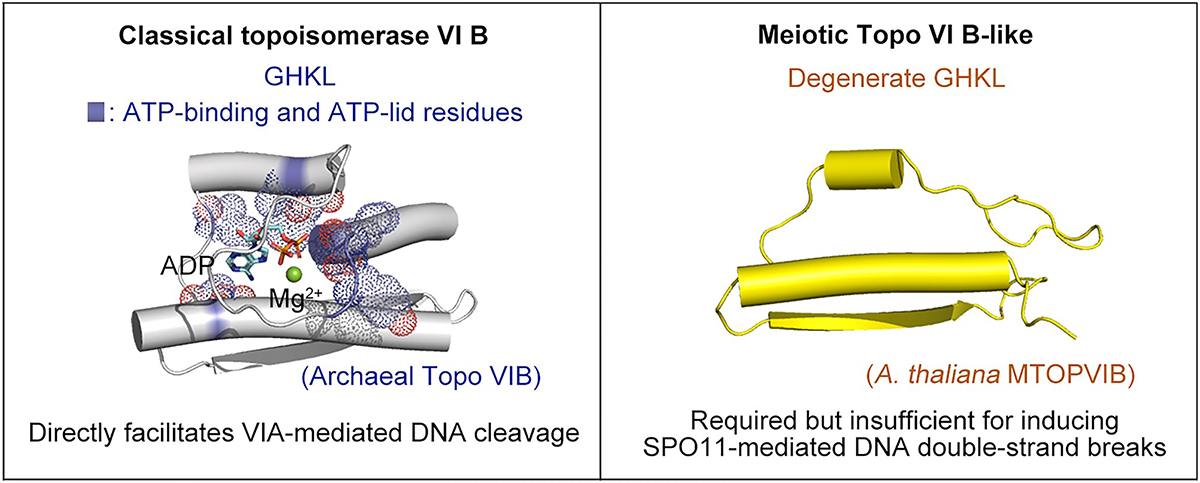
 中央研究院 生物化學研究所
中央研究院 生物化學研究所
Formation of programmed DNA double-strand breaks is essential for initiating meiotic recombination. Genetic studies on Arabidopsis thaliana and Mus musculus have revealed that assembly of a type IIB topoisomerase VI (Topo VI)-like complex, composed of SPO11 and MTOPVIB, is a prerequisite for generating DNA breaks. However, it remains enigmatic if MTOPVIB resembles its Topo VI subunit B (VIB) ortholog in possessing robust ATPase activity, ability to undergo ATP-dependent dimerization, and activation of SPO11-mediated DNA cleavage. Here, we successfully prepared highly pure A. thaliana MTOPVIB and MTOPVIB-SPO11 complex. Contrary to expectations, our findings highlight that MTOPVIB differs from orthologous Topo VIB by lacking ATP-binding activity and independently forming dimers without ATP. Most significantly, our study reveals that while MTOPVIB lacks the capability to stimulate SPO11-mediated DNA cleavage, it functions as a bona fide DNA-binding protein and plays a substantial role in facilitating the dsDNA binding capacity of the MOTOVIB-SPO11 complex. Thus, we illustrate mechanistic divergence between the MTOPVIB-SPO11 complex and classical type IIB topoisomerases.
